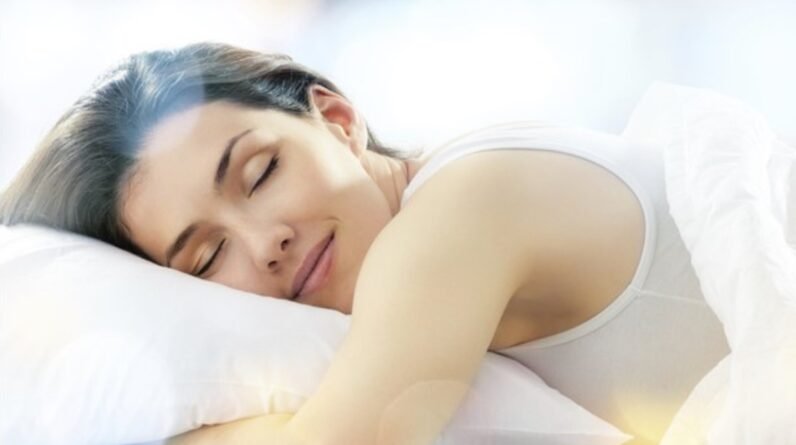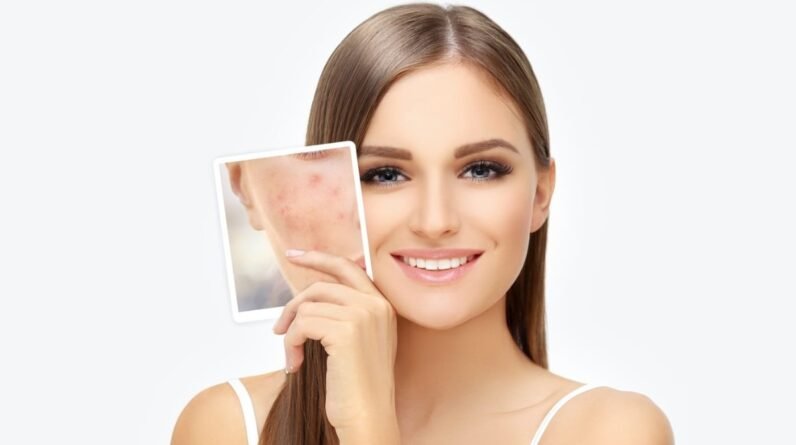
Let’s face it—dealing with acne can be frustrating. One day your skin seems fine, and the next, you’re dealing with breakouts that won’t quit. You’re not alone! Millions of people worldwide, from teens to adults, experience pimples. The good news? Smooth skin is possible with the right approach. Let’s dive into practical, easy-to-follow tips that will leave your skin glowing and your confidence soaring.
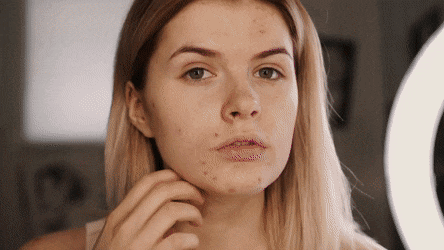
Understanding Acne: It’s More Than Skin Deep
Before jumping into treatments, let’s get to know acne better.
Acne is a skin condition that develops when hair follicles become clogged with oil, dead skin cells, and bacteria. This condition mostly appears on the face, chest, back, and shoulders. It can impact not just your skin but self-confidence and mental well-being as well.
What Causes Acne?
Understanding the root causes of acne is crucial to managing and preventing it. These are factors that contribute to zits:
1) Hormonal Imbalances
Hormonal changes, like during puberty, pregnancy, or menstrual cycles can trigger excessive oil production, leading to outbreak of pimples.
2) Too Much Oil
Overactive sebaceous glands produce too much oil, which clogs pores, causing breakouts.
3) Bacteria Growth
The presence of Propionibacterium acnes (P. acnes) bacteria can inflame the skin and worsen acne.
4) Poor Skincare Habits
Neglecting proper skin hygiene or using unsuitable products can aggravate acne.
5) Diet and Stress
High-sugar foods and stress don’t just mess with your energy, they can also trigger flare-ups.
6) Genetics
If acne runs in your family, you might be more prone to it.
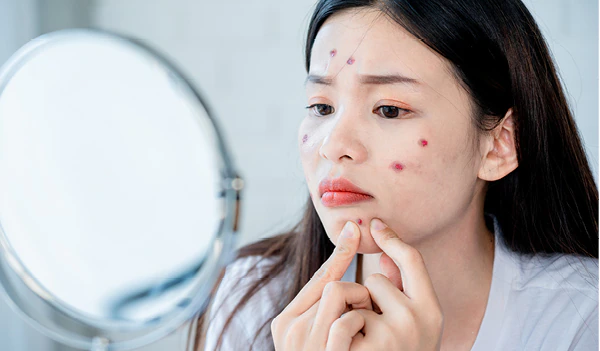
Types of Acne
Understanding the type of acne you have is key to tackling it effectively. Here’s a quick breakdown:
Blackheads and Whiteheads
These are the “starter pack” of acne. Blackheads are open, while whiteheads are closed.
Papules and Pustules
Papules are small, inflamed bumps that may feel tender to the touch. Pustules are similar but are filled with pus and appear red with a white or yellow center.
Cysts and Nodules
These are severe forms of acne that are often painful and can lead to scarring if not treated properly.

How to Prevent Acne Before It Strikes
Prevention is always better than cure. Establishing healthy skincare and lifestyle habits can significantly reduce your risk of developing acne.
Building a Healthy Skincare Routine
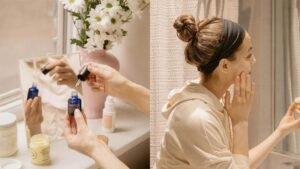
To keep breakouts at bay, establish a consistent skincare routine. This involves diligently cleansing, toning, and moisturizing your skin each day.
The Role of Hydration

Drink water like it’s your job! It flushes toxins, keeps your skin plump, and promotes healing.
Choosing the Right Products for Your Skin Type

Always look for non-comedogenic, oil-free, and gentle skincare products to minimize the risk of clogged pores.
Effective Skincare Routine for Acne-Prone Skin
A tailored skincare routine can work wonders for acne-prone skin. Here’s a step-by-step guide:
Morning Routine
- Gentle Cleanser: Use a sulfate-free cleanser to remove overnight oil buildup.
- Tone Smartly: Alcohol-free toners can help balance your skin.
- Treatment Serum: Apply serum containing salicylic acid or niacinamide to target acne.
- Moisturizer: Treat your skin to a lightweight, oil-free moisturizer for a healthy dose of hydration.
- Sunscreen: Shield your skin by using broad-spectrum SPF 30 or higher.
Evening Routine
- Double Cleanse: Begin by applying an oil-based cleanser to dissolve makeup and excess oil. Then, follow up with a gentle water-based cleanser to thoroughly remove any remaining impurities.
- Exfoliate: Use a chemical exfoliant like AHA or BHA 2–3 times weekly to remove dead skin cells.
- Acne Treatment: Apply topical treatments such as benzoyl peroxide or retinoids as directed.
- Night Cream: Finish with a calming or hydrating night cream to support skin repair overnight.
Lifestyle Changes To Prevent Acne
Sometimes, small adjustments in our daily habits can yield significant results in preventing and managing pimples.
The Impact of Diet on Skin Health

Your skin reflects what you eat. Consuming nutrient-rich foods like leafy greens, omega-3 rich foods (like salmon and walnuts), and antioxidant-packed fruits can improve your skin’s overall health.
Stress Management Techniques To Prevent Acne

Stress can wreak havoc on your skin. Find what helps you unwind. Practices such as yoga, meditation, journaling, a good Netflix binge or even regular exercise can help reduce stress levels.
The Importance of Sleep for Skin Repair

Getting 7–9 hours of sleep per night allows your skin to regenerate and repair itself, reducing inflammation and promoting a healthier complexion.
Natural Remedies for Acne
For those who prefer natural treatments i.e. DIY approach, these remedies can complement your skincare routine:
Tea Tree Oil
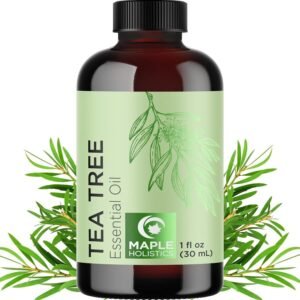
Tea tree oil boasts antibacterial properties. Dab a drop on breakouts to fight bacteria and reduce redness.
Aloe Vera

Use it to soothe inflamed skin and speed up healing.
Honey and Cinnamon Mask
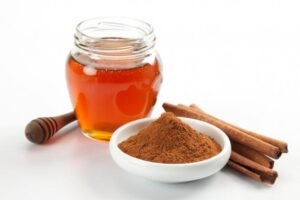
This powerful combination has antimicrobial properties. A sweet and effective way to combat bacteria.
Apple Cider Vinegar Toner

Diluting apple cider vinegar with water can balance your skin’s pH and reduce excess oil. Use it sparingly as a toner to balance your skin’s pH.
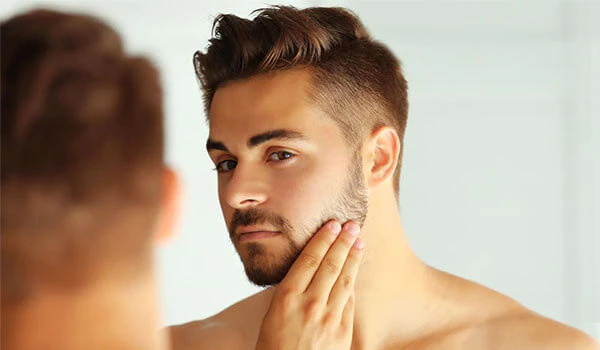
Proven Acne Treatments Backed by Science
Sometimes, natural remedies and lifestyle changes don’t deliver the desired results. That’s okay, there are proven science-backed treatments that can help.
Over-the-Counter (OTC) Treatments
OTC treatments are an excellent starting point for mild to moderate acne.
- Benzoyl Peroxide: This ingredient is effective in killing acne-causing bacteria and reducing inflammation.
- Salicylic Acid: This gentle exfoliant actively unclogs pores and removes dead skin cells.
- Retinoids: Retinoids like adapalene speed up cell turnover, helping to clear existing acne and prevent new breakouts.
Professional Treatments for Stubborn Acne
If your acne is severe or leaving scars, a dermatologist can offer personalized solutions, like:
- Chemical Peels: These treatments exfoliate the top layer of skin, unclogging pores and reducing acne scars.
- Microdermabrasion: A procedure that removes dead skin cells, promoting smoother and healthier skin.
- Laser and Light Therapy: These therapies target the root causes of acne by reducing bacteria and inflammation.
Prescription Medications
When OTC products and professional treatments don’t work, a dermatologist may recommend prescription medications:
- Antibiotics: Help reduce inflammation and bacterial growth in moderate to severe acne cases.
- Isotretinoin (Accutane): A powerful medication for severe acne, though it requires close monitoring due to potential side effects.
- Oral Contraceptives: Hormonal birth control pills can regulate hormones that trigger acne.
- Topical Retinoids: These help clear existing acne lesions and prevent future breakouts.
Treating Acne Scars
Even after breakouts fade, acne scars stay behind as stubborn reminders. Fortunately, several treatments can help restore your skin’s smoothness.
Microneedling
This procedure uses tiny needles to create controlled skin injuries, stimulating collagen production and improving scar texture.
Dermal Fillers
Fillers are injected into depressed scars to plump them up, resulting in a more even skin surface.
Laser Resurfacing
This treatment removes damaged skin layers, promoting new skin growth and reducing the appearance of scars.
When to See a Dermatologist
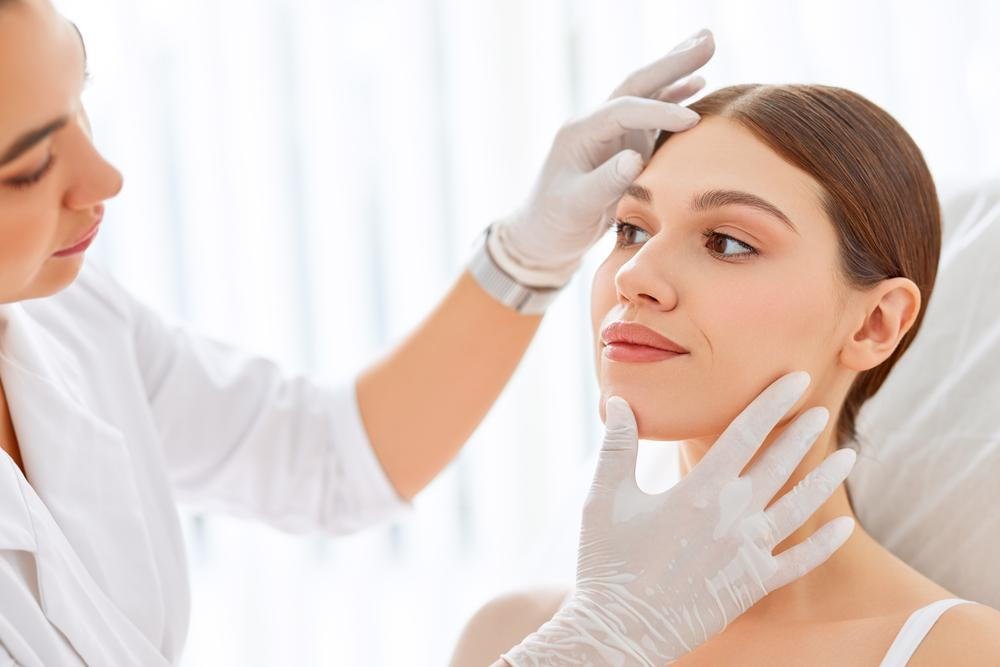
While home remedies and OTC treatments work for many, persistent or severe acne may require professional help. You should see a dermatologist if:
- Your acne doesn’t respond to over-the-counter treatments.
- You experience painful cysts or nodules.
- Acne is leaving permanent scars.
- The condition affects your confidence or emotional well-being.
A dermatologist can provide a personalized treatment plan tailored to your skin type and concerns.
Common Myths About Acne
Let’s bust some common misconceptions that may be holding you back from effective acne management:
Myth 1: Acne Only Affects Teenagers
Acne isn’t exclusive to teenagers. Adults of all ages can experience acne due to stress, hormonal changes, or other factors.
Myth 2: Washing Your Face More Prevents Acne
Over-washing can strip your skin of its natural oils, prompting it to produce more oil and potentially worsening acne.
Myth 3: Popping Pimples Helps Them Heal Faster
Popping pimples can introduce bacteria into the skin, and causes scars
Myth 4: Makeup Causes Acne
Not if you choose non-comedogenic products and remove makeup before bed.

Frequently Asked Questions On Acne Treatment
1) Can acne be cured permanently?
While there’s no permanent cure, consistent skincare and proper treatment can help you maintain clear skin.
2) What foods should I avoid to prevent acne?
Avoid high-sugar, dairy-rich, and processed foods, as they can contribute to breakouts.
3) How long will it take to see clearer skin?
Most treatments show noticeable improvements within 4–8 weeks of consistent use.
4) Are natural remedies better than OTC products?
Natural remedies can be effective for mild acne but may not work as well for severe cases.
5) Is it advisable to pop pimples?
No, popping pimples can lead to scarring and worsen the inflammation. It’s better to let them heal naturally or consult a dermatologist.
Conclusion: Confidence Starts with Clear Skin
Achieving clear skin isn’t an overnight process, but with the right combination of skincare, lifestyle changes, and professional treatments, it’s entirely possible. Whether you’re addressing mild acne or severe breakouts, consistency and patience are key. Remember, smooth skin is more than just a physical improvement, it is about you feeling confident and comfortable in your own skin.
Wave goodbye to stubborn acne and hello to glowing, confident skin! Find out how to tackle breakouts, calm redness, and get that clear, radiant complexion you’ve been dreaming of. Ready to take control of the annoying acne? 👉 Click Here and Let’s Make It Happen!

